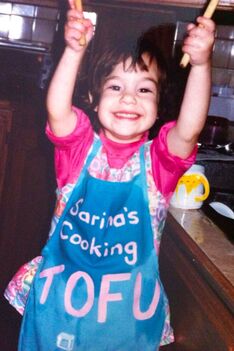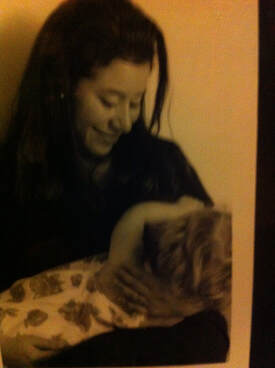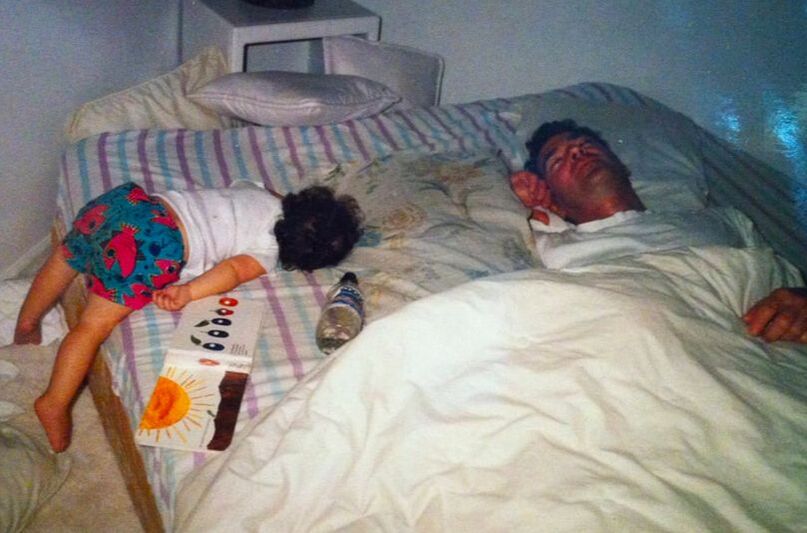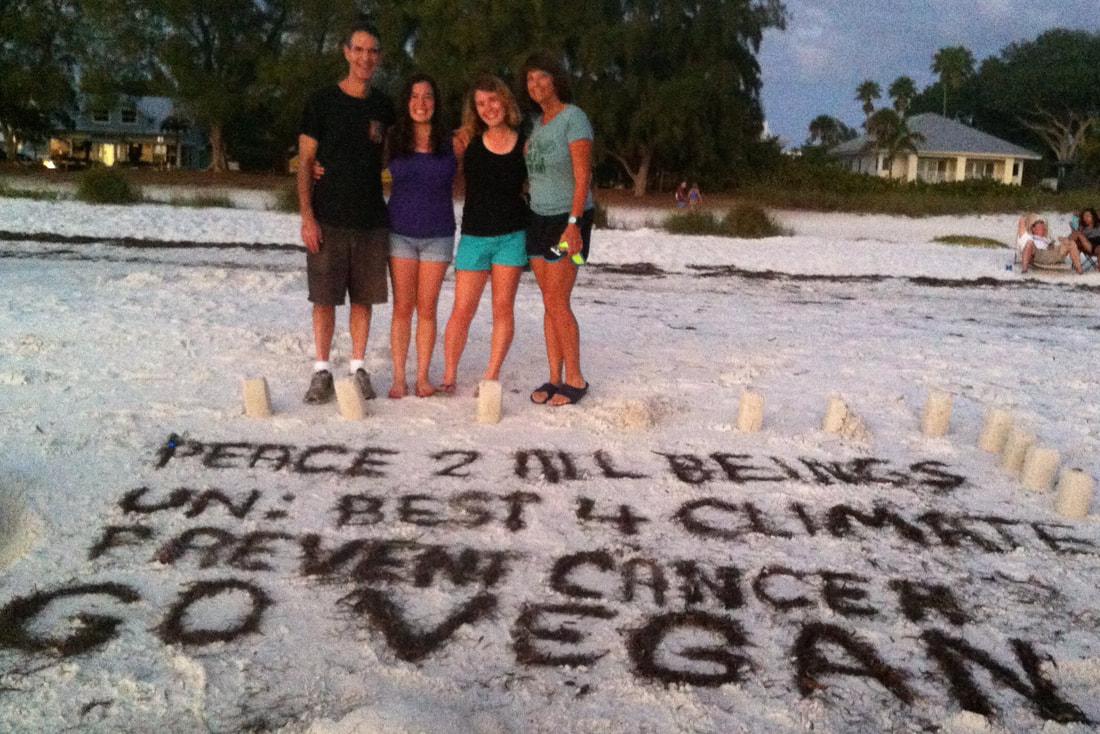Anthropologists who have studied various cultures have described a variety of ways that elements of culture are transmitted to individuals born into that culture. These include such things as the usage of language, participation in rituals, the telling of stories, the emotion conveyed in relationship to certain events, and all the day to day, moment by moment choices and behaviors that one can observe in those around them.
For the most part this is a process that happens automatically and unconsciously. Yet everyone agrees that enculturation is a very powerful force, one that shapes the context of every individual's entire life, and lays a foundation that for good or bad influences our life choices in subtle and pervasive ways.
While some popular books try to argue that parents have little influence with their children today, I believe that parents who choose to educate their children at home, and choose to forgo television can be very influential, and powerful role models -- if they also build strong bonds of trust by meeting their children's developmental needs, with attachment parenting and healthy boundaries and use non-violent discipline. If we also give some thought to making conscious choices about which aspects of the larger culture we share with our children when they are very young and develop a degree of awareness about some of the ways we may be unconsciously transmitting and reinforcing elements of the larger culture that we consider harmful or counter to the positive aspects we are hoping to impart, we can influence our child's perspective in a way that increases his or her odds of becoming a healthy, compassionate citizen.
The process of enculturation begins at birth. When our baby wants to suck for comfort, and we offer our breast the message is very different then if we offer a bottle or pacifier. We are telling them whether WE believe in seeking comfort from people or things. When I play "This Little Piggy" with my babies, the third little piggy never has roast beef....but instead has tofu. My toddler and I play a game at nap time, as I am changing her diaper before nursing her down to sleep.
It starts with her saying, "Milk! Milk!"
Then I pause as if trying to think what kind of milk she might want...smiling broadly I ask,
"Mommy's Milk?"
"YESSSS!" she says with even more emphasis then any of the no's.
And then we settle down to nurse.
Games such as this reinforce our family's view that drinking the milk of any other animal is yucky and an aberration of what is normal.
Once when my younger daughter had a cough for over a week, I took her to the doctor. My six year old went too. She heard me tell the doctor that we've never used antibiotics--or any other drugs -- and wouldn't unless we there was a very serious problem. The doctor agreed saying they are way overused. Then he examined my toddler and reported that her ears and tonsils looked perfect, and her lungs were clear. The only signs of illness he could see were that her temperature was elevated one degree, and she had one small swollen gland. I felt glad to know there was nothing serious wrong and that we could simply let her body heal itself. But then the doctor offered to give us a prescription for antibiotics and recommended a decongestant too. Of course I declined all these things. But it was a good example for my children to see that I do not turn over my decision making to any "authority figures" and that while we may seek out the opinions of others, we still must make our own responsible choices consistent with our own values and beliefs.
Today at lunch my six year old told me that she thinks the reason she does not know much about the world (we had been talking about the legal requirements for home schoolers and how they are slightly different in every state.) is because we don't eat meat, and so she misses out on a part of the world that everyone else knows about. "How do you feel about that?" I asked her -- not sure where she was going with this whole discussion. "Good." She told me..."I'm glad I don't eat meat." I waited to see what else she might offer up, but she seemed to have expressed all that she wanted. This gave me an opportunity to point out to her how not eating meat had nothing to do with not understanding the laws about homeschooling, and that no two people on earth have exactly the same knowledge of the world. I went on to explain how the world is such a vast place that no one can know everything. So based upon our own unique experiences each of us knows slightly different things. Then I pointed out some of the things that she knows all about, which most six year olds wouldn't know anything about. She seemed very comfortable with our discussion.
My point in all this is to raise awareness that hundreds of times a day each of us, as a parent is making choices. The stories we read, the words we use, the way that we offer comfort, the foods we make available, the outside influences we bring into our homes (toys and TV for example) every one of these choices is an element of enculturation. Individually and moment by moment, each choice by itself is probably inconsequential. But together they suggest a path, they create a paradigm. Together they communicate to our children what we value most, what we stand for, what we believe in our hearts.
"Mommy's Milk?"
"YESSSS!" she says with even more emphasis then any of the no's.
And then we settle down to nurse.
Games such as this reinforce our family's view that drinking the milk of any other animal is yucky and an aberration of what is normal.
Once when my younger daughter had a cough for over a week, I took her to the doctor. My six year old went too. She heard me tell the doctor that we've never used antibiotics--or any other drugs -- and wouldn't unless we there was a very serious problem. The doctor agreed saying they are way overused. Then he examined my toddler and reported that her ears and tonsils looked perfect, and her lungs were clear. The only signs of illness he could see were that her temperature was elevated one degree, and she had one small swollen gland. I felt glad to know there was nothing serious wrong and that we could simply let her body heal itself. But then the doctor offered to give us a prescription for antibiotics and recommended a decongestant too. Of course I declined all these things. But it was a good example for my children to see that I do not turn over my decision making to any "authority figures" and that while we may seek out the opinions of others, we still must make our own responsible choices consistent with our own values and beliefs.
Today at lunch my six year old told me that she thinks the reason she does not know much about the world (we had been talking about the legal requirements for home schoolers and how they are slightly different in every state.) is because we don't eat meat, and so she misses out on a part of the world that everyone else knows about. "How do you feel about that?" I asked her -- not sure where she was going with this whole discussion. "Good." She told me..."I'm glad I don't eat meat." I waited to see what else she might offer up, but she seemed to have expressed all that she wanted. This gave me an opportunity to point out to her how not eating meat had nothing to do with not understanding the laws about homeschooling, and that no two people on earth have exactly the same knowledge of the world. I went on to explain how the world is such a vast place that no one can know everything. So based upon our own unique experiences each of us knows slightly different things. Then I pointed out some of the things that she knows all about, which most six year olds wouldn't know anything about. She seemed very comfortable with our discussion.
My point in all this is to raise awareness that hundreds of times a day each of us, as a parent is making choices. The stories we read, the words we use, the way that we offer comfort, the foods we make available, the outside influences we bring into our homes (toys and TV for example) every one of these choices is an element of enculturation. Individually and moment by moment, each choice by itself is probably inconsequential. But together they suggest a path, they create a paradigm. Together they communicate to our children what we value most, what we stand for, what we believe in our hearts.





